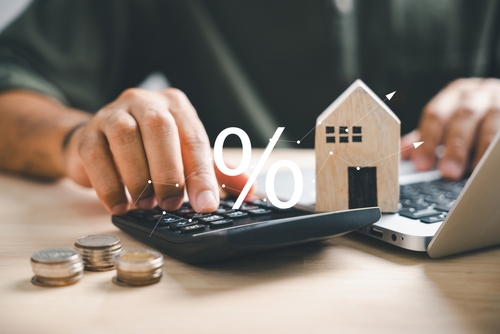This has been prepared by HMRC for landlords who are also pensioners
-
What is Self Assessment?

This has been prepared by HMRC for landlords who are also pensioners
-
What is Self Assessment?
Self Assessment is the process used to declare and pay tax owed on untaxed income.
If you are employed, your employer will deduct tax owed before they pay you - known as PAYE or ‘pay as you earn’.
If you are self-employed, earn additional untaxed income or don’t have an employer deducting tax, you may need to do a tax return.
If you’re working for yourself, by registering as self-employed for Self Assessment you can access contributory benefits or the state pension.
Why people claiming state pension might also need to send a tax return?
State pension is classed as taxable income.
You only need to pay tax on the income you have earned which exceeds your personal allowance: £12,570.
If you are receiving the increased full state pension of £11,502 and this is your only income, you aren’t expected to complete a Self Assessment tax return because it is within your personal allowance.
If you receive the state pension and receive additional income from private pensions, investments, savings interestor earnings which takes your total annual taxable income above your personal allowance and any other allowances, you may need to pay tax.
If you complete a Self Assessment return you should use this for reporting and paying any additional earnings, pension income, interest on your savings, dividend income and non-property related capital gains tax.
If you do not currently complete a Self Assessment return then you will need to register for Self Assessment for reporting any capital gains tax (if you’re eligible you may be able to use the ‘real time’ Capital Gains Tax Service), dividend income over £10,000 and savings interest over £10,000.
If you have dividend income up to £10,000, you’ll need to contact HMRC and, if you have a PAYE tax code, you can ask for your tax code to be changed.
For other forms of taxable income, including state pension, HMRC will write to you with details of how we will collect the tax. If you have a PAYE tax code from a private pension or employment, HMRC will be able to deduct the tax due automatically. If you do not have a PAYE tax code, then HMRC will inform you of how much tax you have to pay and how to pay it - a process known as simple assessment. Check your Simple Assessment tax bill - GOV.UK (www.gov.uk)
How can I register for Self-Assessment?
To complete Self Assessment, you must register via GOV.UK.
If you’ve not used HMRC’s online service before, you’ll need two forms of evidence to prove your identity. This can include your UK passport and UK driving licence.
Once you have registered, HMRC will send you your Unique Taxpayer Reference (UTR) which you will need when you complete your Self Assessment.
What information will I need before I start my tax return?
You will need your UTR and National Insurance number, your income, earnings and other financial records.
When is the deadline?
The Self Assessment deadline for the 2023 to 2024 tax year is 31 January 2025.
You must file your tax return and pay any tax owed by the deadline.
If you miss it, you may incur penalties.
You don’t have to wait until the deadline, submit your Self Assessment tax return for the 2023/24 tax year and pay anytime from 6 April 2024.
How do I submit my tax return and how do I pay?
You can do it online at GOV.UK. You can save your progress and fill it in at a time that suits you ahead of the deadline.
The quickest and easiest way to pay your Self Assessment is via the HMRC app. This YouTube videoexplains how you can use the app to make a payment through online banking or your bank’s own app.
You can make a payment any time, for any amount, but you must pay what you owe by the deadline to avoid interest and penalties.
Remember to include your bank account details on your tax return so that we can repay you quickly and securely if you are owed a refund. If you can’t pay in full, HMRC will work with you to find an affordable way for you to pay the tax you owe.
What help is available?
It is important to make sure the information you provide on your tax return is accurate and HMRC wants to help taxpayers to get it right first time. There is online resources and guidance to help you with your tax return on GOV.UK.
There is guidance on filling in your tax return: About this guidance – Guidance – GOV.UK (tax.service.gov.uk)
HMRC’s online services offer quick and easy ways to manage your tax affairs. Its helpline and webchat advisers support those who are vulnerable, people who do not have access to the internet and those with complex tax affairs.
——-
We're excited to announce that we're working on building a shiny new website for readers of Landlord Today! As part of this process, commenting on articles will be temporarily disabled. We look forward to sharing our new and improved Landlord Today website with you shortly!